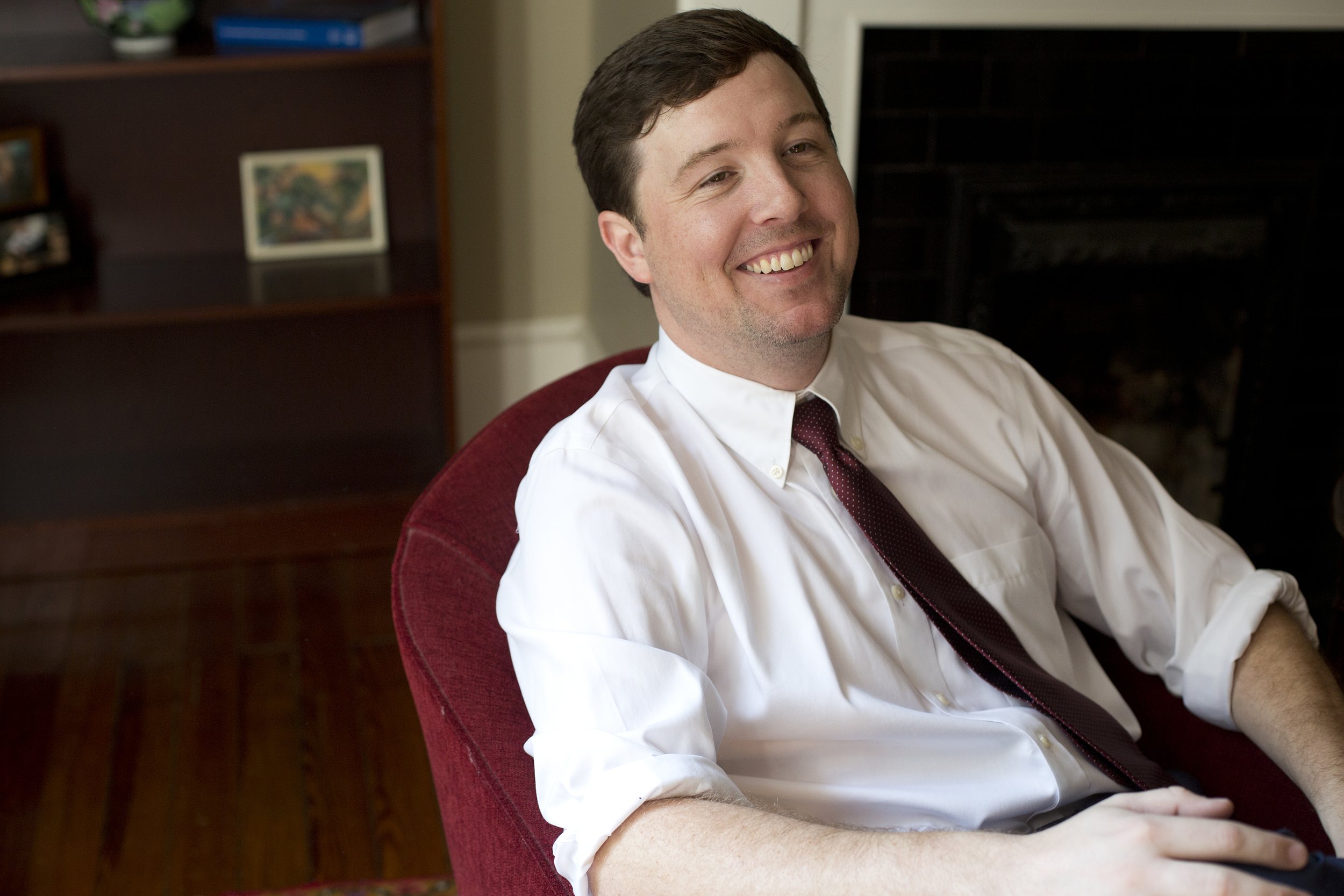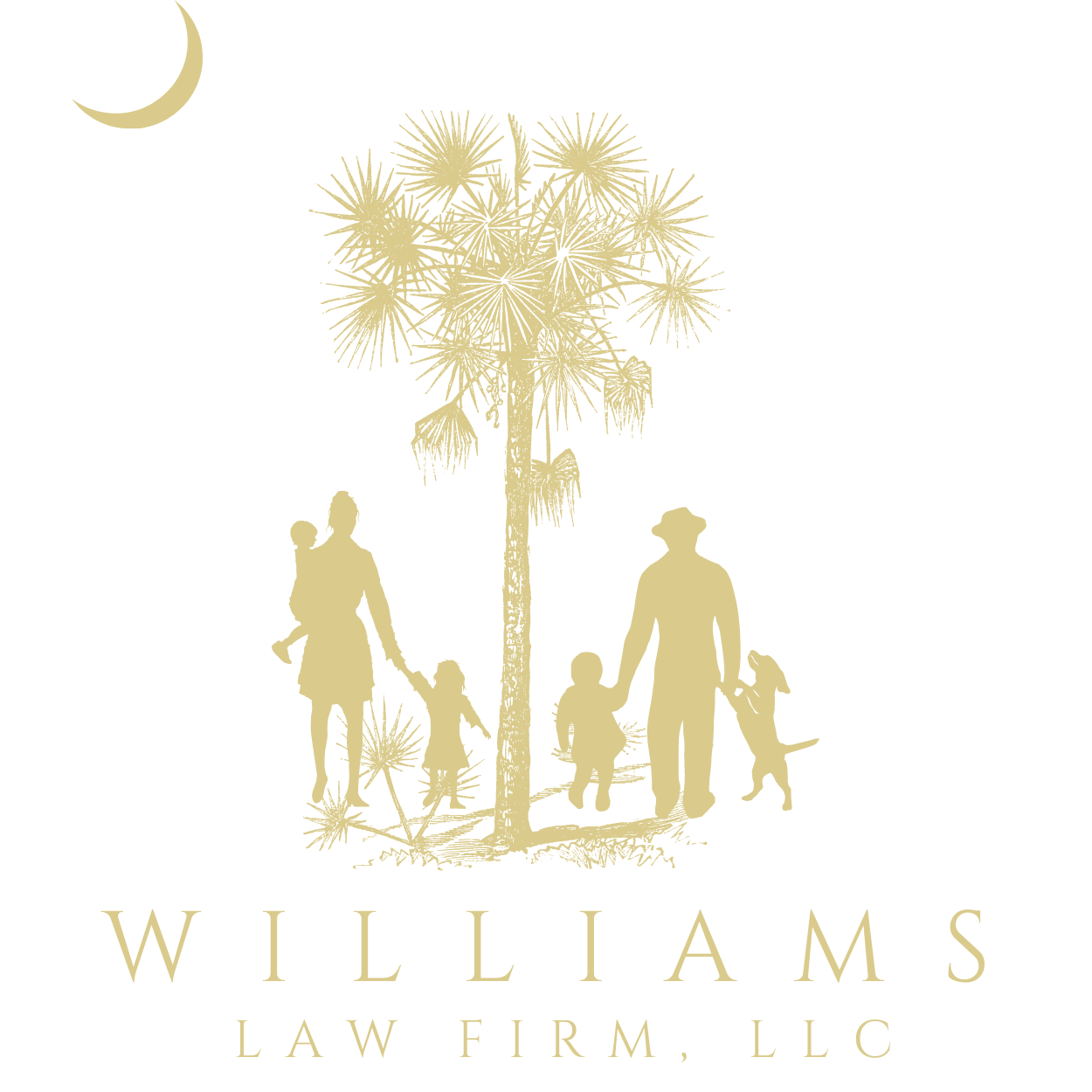
Live Your Life, Protect Your Legacy
Our Wills and Estate Planning services at Williams Law Firm, LLC are focused on the client, striving to keep this ever important task as simple as possible. We help families define their legacy on their own terms.
SOUTH CAROLINA ESTATE PLANNING ATTORNEYS
Our approach
Williams Law Firm, LLC provides a well-structured, client-friendly estate planning process, throughout which we examine strategies to protect the client’s legacy. Through our counsel, we aim to make clients feel as confident as possible in making their most important decisions. We can help you determine and execute the proper approach for your unique life circumstances.
Our services
-

Last Will and Testament
-

Revocable Living Trusts
-

Testamentary Trusts
-

Powers of Attorney and other Ancillary Documents
Providing efficient representation with a personal touch.
All of your consultations prior to signing your estate documents can be done with your attorney in our office, virtually over video, or via phone conference, so there’s no need to take extra time out of your day to travel to and from a law office. Signing ceremonies are generally held at our office, but we are available to conduct them at a location of your choosing.
Alternative meeting formats can be arranged for every step of the process.
In-person and remote options
While we are available to hold all planning meetings virtually, we are happy to accommodate those who prefer to meet in person at our office or a location of their choice. Your signing ceremony will always be in-person at our office or a location of your choosing.
South Carolina Estate Planning Attorney
-
Many people believe that estate planning is only for the wealthy or the elderly. However, regardless of age and wealth, everyone should consider an estate plan. Estate planning involves creating advance arrangements on how to distribute your property, money, and other assets upon your death or incapacitation. Your estate can include all of your personal possessions, including your home, other real estate, cars, life insurance, bank accounts, furniture, artwork, and other personal possessions.
The inevitability of death has not discouraged most from going without clear instructions on the distribution of their assets. Many people have not considered what will happen to their hard-earned wealth when they die or become incapacitated. After working so hard to accumulate assets, it is natural to want to control who gets what after your death or incapacitation. Mostly, this is only possible with a comprehensive estate plan in place.
While some people procrastinate on creating an estate plan because they don’t want to discuss their death, many people are unaware of the benefits of having a comprehensive estate plan. As a result, only around half of American property owners have an estate plan.
In addition to helping you control who receives your possessions upon your death, an estate plan can also help you manage your assets while living. Importantly, a plan often protects your family from unnecessary conflict and fights over the estate you leave behind. A good estate plan will generally help minimize taxes, legal fees, and other court costs while working to shield your loved ones from the often expensive and lengthy probate court process.
Estate plans require both acknowledging your eventual death and making many sensitive decisions about distribution of your assets. The process can be overwhelming without a lawyer who has developed a client-friendly process. Whether you come from modest means and need a simple plan to protect your family, or you possess significant wealth and need to consider complex tax issues, you need the guidance of a skillful estate planning attorney.
If you are in South Carolina and wish to create an estate plan but are unsure where to start, do not worry. Our skilled and experienced South Carolina estate planning attorneys at Williams Law Firm, LLC have developed a client-friendly estate planning process that makes the process as stress-free as possible. We will help you create an estate plan that suits your needs. We are also available to assist your family during estate administration and the probate process.
-
In simple terms, an estate plan is a collection of legal documents that outlines how you want your assets distributed when you die. Besides property transfer upon death, an estate plan also consists of identifying the person you choose to make financial and medical decisions on your behalf, if you become incapacitated.
Some essential documents that make up an estate plan include a will or trust, durable power of attorney, healthcare proxy, and a living will or advanced directive.
Last Will and Testament: The will and testament is the primary estate planning document, and it outlines how you would like your property and assets distributed when you die. Among many other possible directives, it names a personal representative (sometimes called an executor) to administer the estate in accordance with your wishes, and if you have minor children, it designates a guardian to take custody.
Trust: A trust is a legal vehicle by which a third party, known as a trustee, is allowed to manage assets on behalf of a beneficiary at the direction of the settlor (person who creates the trust). Often, trusts are utilized to reduce liabilities and fees, but most of all stress, for your heirs. Trusts can also be used to effectively donate to charities. Trusts are often used as an additional instrument to a will, which helps to efficiently distribute your assets upon death. Trusts can provide some benefits to your estate planning that a will cannot.
Durable Power of Attorney: The document names someone you trust to handle financial and legal matters on your behalf if, for any reason, you are no longer able to do so.
Healthcare Power of Attorney. The document, sometimes referred to as a healthcare proxy, appoints someone to make healthcare and medical decisions on your behalf if you can no longer do so. Essentially, you let your family and doctor know about your health care or medical wishes through your appointed agent.
Living Will. Closely related to the healthcare power of attorney, the document is a form of advanced directive and outlines your end-of-life healthcare wishes. It outlines medical details, including pain relief and resuscitation, but can also cover things like your obituary and epitaph.
Generally, an estate plan is more than naming who you want to receive your assets when you die. It also involves taking steps to manage your wealth while still alive, especially in the event of incapacitation before death. A good estate plan consists of both executing the entire estate plan and making sure it is easy to implement. Additionally, estate planning is an ongoing process that involves reviewing and updating your plan as your circumstances change. It is important to review your circumstances every now and then, or following changes in your life.
-
Using a lawyer is not a requirement when creating an estate plan, but it is highly advisable. Attempting to plan your estate without an attorney can lead to costly mistakes and major headaches for your family. Some of the common estate planning mistakes include:
Failing to create a Will or other necessary estate planning documents. Too many people avoid or delay hiring an attorney to draft a Will and related documents. Everyone should be aware that, if you die without a will, the state will make the decisions about distributing your assets. Consequently, your loved ones risk losing a part or all of your property.
Failure to understand asset distribution. Even where you have a Will, it does not always control the distribution of ALL of your assets upon your death. When creating an estate plan, it is essential to understand asset distribution, because some assets can pass outside of a Will or living trust.
Estate plans around specific assets. The mistake occurs where a person plans their estate around a particular asset, including setting aside a specific asset for a specific person. Sometimes that asset is disposed of prior to death, and sometimes that asset becomes a liability over time. This can create complications for your personal representative and loved ones during the administration of the estate.
Passing on a property to minors without appointing a guardian or conservator. In such cases, the court appoints a guardian or conservator to manage the property until the minors are of legal age. It may be someone you would not typically appoint.
Failing to appoint a guardian for your children. If parents fail to identify someone to take custody of their children in the event of death, the state will choose your children’s new guardian. No parent should have such an important decision stripped from them.
Accordingly, it is important to seek the help of an estate planning attorney to avoid making these and other estate planning mistakes, including failing to plan for children or parents with special needs.
-
It is important to understand the consequences for failing to execute an estate plan. Without an estate plan, upon your death, the government will determine who takes custody of your children and who receives your assets. While every effort is made to keep children and assets with your family, in certain cases, the state will actually take possession of your assets and custody of your children.
Without some legal training, it might be hard to understand the often complex considerations regarding estate planning rules and procedures. Typically, a layperson may not be familiar with how to avoid work towards avoiding probate, how estate taxes is calculated, among other issues. You should always seek legal guidance for such important decisions.
In addition to the need for legal guidance, here are some other reasons why you need an estate planning attorney:
Help navigating complicated estate planning laws: With estate planning laws varying by state, it may be hard for you to know which laws apply to your state or to another state where you have property. Essentially, different states may treat similar situations differently. For instance, your state can have limits on who you can appoint as a personal representative, while another state, where you also own property, may not have such limitations. An attorney can help you navigate these estate planning complications and avoid related mistakes.
Helping you choose the best plan for your estate planning goals and needs: Your estate planning needs and goals are unique to your circumstances, hence the need to have a personalized estate plan. For instance, the estate planning needs of a recently married couple with a modest income are different from that of a wealthy and elderly businessperson and vice versa. A lawyer can help you create the estate plan that best fits your current family and financial situation.
Helping you avoid the probate court process as best as possible: Transferring a deceased person’s estate to designated heirs and beneficiaries can be overwhelming for a family still in mourning, especially if the transfer involves the often costly and prolonged probate court process. A skilled estate planning lawyer can guide you on avoiding probate court and simplifying the estate distribution process for your family when you die.
Helping you comprehensively protect your assets and family: Any mistakes during the estate plan drafting process, including using the wrong wording or failure to sign in the proper place, can leave your beneficiaries exposed after you die. Estate planning lawyers will help you draft the necessary estate planning documents, including having the correct wording. Essentially, they help you secure your property and protect your loved ones. Additionally, the attorneys may also offer guidance on how to reduce estate planning-related tax liabilities.
Helping you put your affairs in order: Since estate planning is an ongoing process and not a one-time event, working with an estate attorney helps puts your affairs in order through regular review and updates of the estate plan. Estate planning attorneys can also help with other related issues, including organizing your financial records to ensure your estate is administered drama-free after your death. With all your affairs in order, you help your loved ones avoid the potentially devastating effects of fighting for the assets you leave behind.

What Our Clients Say!
“My experience with Williams Law Firm was great. Mr. Williams was professional, efficient and personable. I highly recommend their services.”
“I enjoyed working with Mr. Williams. He is a very professional and knowledgeable young man. He helped me with all my needs and more. Thanks for your wonderful service.”
“It’s important to work with an attorney who is not only knowledgable in Estate Planning, but one you trust and with whom you can be 100% honest.”
- Matt Williams, Esq.
Principal Attorney of Williams Law Firm, LLC











